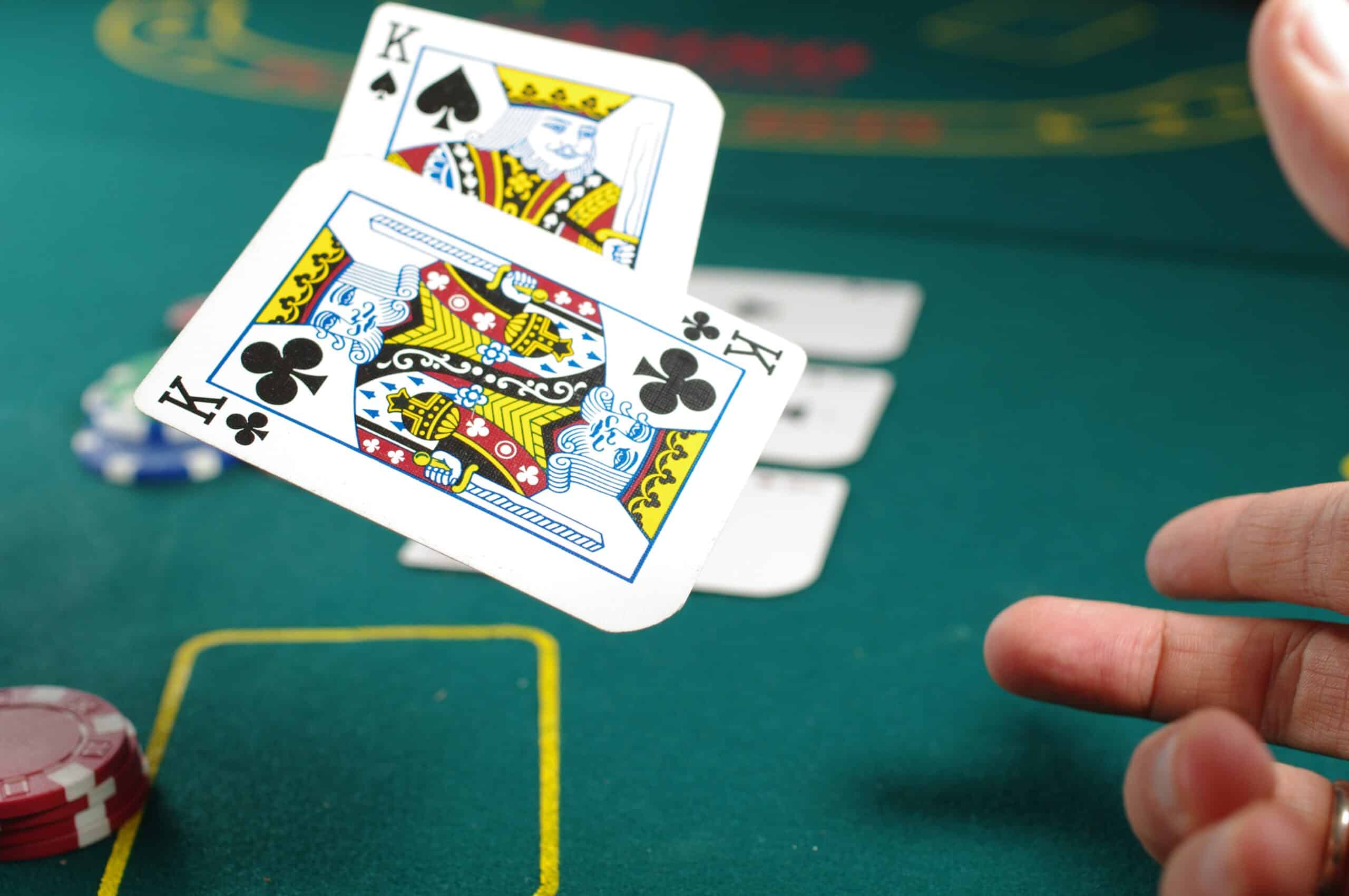
Guides: Casino Lingo | 50 Terms Every Player Should Know | E-Vegas.com
In the world of gambling, there are numerous terms and concepts that players should be familiar with to enhance their understanding and make informed decisions. Whether you’re a seasoned player or new to the casino scene, it’s crucial to grasp the basics of terms like House Edge, RTP (Return to Player), and many others. In this article, we’ll delve into these terms and more, providing you with a comprehensive guide to navigate the casino landscape.
1. House Edge
The House Edge is a fundamental concept that plays a significant role in casino games. It represents the statistical advantage held by the casino over the players. Understanding the House Edge is crucial for gamblers to make informed decisions and manage their expectations.
2. RTP (Return to Player)
RTP, or Return to Player, is the percentage of the total wagered amount that a specific casino game is programmed to pay back to the players over time. It is the opposite of the House Edge and provides players with an indication of their potential winnings or losses.
3. Wagering Requirement
Wagering Requirement is a term commonly associated with casino bonuses and promotions. It refers to the number of times a player must wager the bonus amount or winnings before being eligible to withdraw the funds.
4. Jackpot
The Jackpot is a coveted prize in casino games, often associated with slot machines and progressive jackpots. It represents a substantial amount of money that can be won by a lucky player who hits the right combination or fulfills specific requirements.
5. Bankroll
Bankroll refers to the total amount of money that a player sets aside for gambling purposes. Managing your bankroll effectively is essential for maintaining control and avoiding excessive losses.
6. Bet
A bet is the amount of money a player wagers on a particular outcome in a casino game. The bet can vary in size and is determined by the player’s strategy and risk appetite.
7. House Rules
House Rules are a set of guidelines and regulations established by the casino to govern the conduct of players and ensure fair gameplay. Familiarizing yourself with the house rules is crucial when engaging in any casino activity.
8. Dealer
The Dealer is the casino employee responsible for facilitating the game and dealing the cards to the players. The dealer plays a crucial role in maintaining the integrity of the game and ensuring fair play.
9. Banker
In certain card games, such as Baccarat, the Banker is a position that represents the casino. The Banker’s role is to facilitate the game and compete against the players.
10. Chips
Chips are tokens used in casinos to represent monetary value. They come in various colors and denominations and are used for placing bets and conducting transactions within the casino.
11. Stake
Stake refers to the amount of money or chips that a player places on a particular bet. It represents the risk taken by the player in the hopes of winning a larger sum.
12. Progressive Jackpot
A progressive jackpot is a continuously growing prize pool that accumulates over time. It is often associated with slot machines or certain table games and offers the potential for substantial winnings.
13. RNG (Random Number Generator)
The RNG, or Random Number Generator, is a crucial component of online casino games. It ensures that the outcomes of the games are fair and random, providing a level playing field for all players.
14. Payout
The payout refers to the amount of money that a player receives when they win a bet or a game. Payouts can vary depending on the specific game and the odds associated with it.
15. Comps
Comps, short for complimentary items, are rewards or perks that casinos offer to their loyal players. These can include free meals, hotel accommodations, show tickets, or other exclusive privileges.
16. High Roller
A high roller is a player who frequently wagers large sums of money at casinos. High rollers are often eligible for special treatment, bonuses, and exclusive services.
17. Card Counting
Card counting is a strategy used by skilled players in certain card games, such as Blackjack, to gain an advantage over the casino. It involves keeping track of the cards that have been dealt to predict the likelihood of favorable outcomes.
18. Hand
A hand refers to the cards held by a player in a card game. The strength of a hand determines the player’s chances of winning the game or placing successful bets.
19. Hit
In card games like Blackjack, hitting is the action of requesting an additional card from the dealer to improve the value of the player’s hand.
20. Stand
Standing in a card game signifies the decision to not request any more cards from the dealer, indicating satisfaction with the current hand value.
21. Double Down
Double down is an option available in certain card games, where the player can double their initial bet after receiving the first two cards, with the condition of receiving only one more card.
22. Split
Splitting is an action available in certain card games, such as Blackjack, when a player’s initial two cards are of the same rank. The player can choose to split the cards into two separate hands and place an additional bet.
23. Surrender
Surrender is an option available in some card games, where a player can choose to forfeit half of their bet before the dealer reveals their hand.
24. Insurance
Insurance is a side bet option available in certain card games, primarily Blackjack, where players can bet on whether the dealer’s face-up card will be a value of ten.
25. Push
A push occurs in a casino game when the player and the dealer have the same hand value. In this case, the player’s bet is returned without any additional winnings or losses.
26. Flop
In poker games, the flop is the term used to describe the first three community cards that are revealed on the table. The flop plays a crucial role in determining the potential winning hands for players.
27. Turn
The turn is the fourth community card in poker games. It is revealed after the flop and provides additional information for players to strategize and make betting decisions.
28. River
The river is the fifth and final community card in poker games. It is revealed after the turn and completes the available cards on the table. The river significantly impacts the final outcomes and potential winning hands.
29. Ante
An ante is a mandatory bet that all players must place before the start of a hand in certain card games. The ante ensures that there is a minimum amount of money or chips in the pot to begin the game.
30. Blind
Blinds are forced bets placed by specific players before the start of each hand in certain poker variations. The blinds rotate among players to ensure fairness in the betting structure.
31. Call
To call in a casino game means to match the current bet or wager made by another player. It allows the player to stay in the game and continue participating in the betting rounds.
32. Raise
Raising is the action of increasing the current bet or wager made by another player. It signals confidence in the strength of one’s hand and often prompts other players to make additional bets or fold.
33. Fold
Folding is the decision to forfeit the current hand and not participate further in the game. Players fold when they believe their hand is weak or the betting becomes unfavorable.
34. All-In
Going all-in refers to betting all of one’s remaining chips or money on a single hand or round. It signifies a high level of confidence or desperation, as the player risks everything they have on that particular outcome.
35. Bad Beat
A bad beat occurs when a player with a strong hand is unexpectedly defeated by a player with a statistically inferior hand. It is a frustrating and unfortunate outcome in casino games.
36. Bricks and Mortar
The term “bricks and mortar” is used to refer to physical, land-based casinos. It distinguishes them from online or virtual gambling platforms.
37. Croupier
A croupier is a casino employee who oversees the operation of table games. They are responsible for dealing cards, collecting bets, and enforcing the rules of the game.
38. Martingale
Martingale is a betting strategy commonly used in casino games. It involves doubling the bet after each loss with the aim of recovering previous losses and making a profit.
39. VIP
VIP, short for Very Important Person, refers to players who receive special treatment, benefits, and exclusive rewards from the casino. VIP programs are designed to cater to the needs and preferences of high-value players.
40. Rake
Rake is the commission or fee charged by the casino for hosting a poker game. It is a small percentage deducted from the pot as compensation for the casino’s services.
41. Cage
The cage in a casino is the area where players can exchange chips for cash or vice versa. It is typically located near the cashier and serves as the financial hub of the casino.
42. Gamble
To gamble means to take a risk or wager money on an uncertain outcome, typically in the context of casino games. Gambling involves chance and requires players to make decisions based on probabilities and odds.
43. Marker
A marker is a line of credit extended by the casino to a player. It allows the player to access funds for gambling without carrying large sums of cash.
44. Pit Boss
The pit boss is a casino supervisor who oversees the gaming tables and ensures that the games run smoothly. The pit boss resolves disputes, monitors the behavior of both players and dealers, and ensures compliance with casino regulations.
45. Tilt
Tilt is a term used to describe a state of emotional frustration or anger that affects a player’s decision-making ability. Going on tilt often leads to poor judgment and impulsive actions, resulting in potential losses.
46. Session
A session refers to a period of time during which a player engages in gambling activities. It can vary in duration, from a few minutes to several hours, depending on the individual’s preferences and available time.
47. Whales
Whales are high-stakes gamblers who wager substantial amounts of money in casinos. These players are known for their significant financial resources and their ability to impact the casino’s revenue.
48. Loyalty Program
A loyalty program is a reward system implemented by casinos to incentivize and retain regular players. These programs offer various perks, such as exclusive bonuses, cashback, and VIP treatment, based on a player’s level of activity and loyalty.
49. Banker’s Advantage
Banker’s advantage refers to the inherent statistical advantage that the casino holds in certain games. It is built into the game’s rules and payout structures, ensuring the casino’s profitability in the long run.
Conclusion
In conclusion, understanding the various terms and concepts related to casino gambling is crucial for players to make informed decisions and enhance their overall experience. From the house edge and RTP to different betting strategies and casino personnel, each element plays a significant role in shaping the outcome of a game. By familiarizing themselves with these terms, players can navigate the casino landscape with confidence and enjoy their time while minimizing potential risks.
More About Poker:
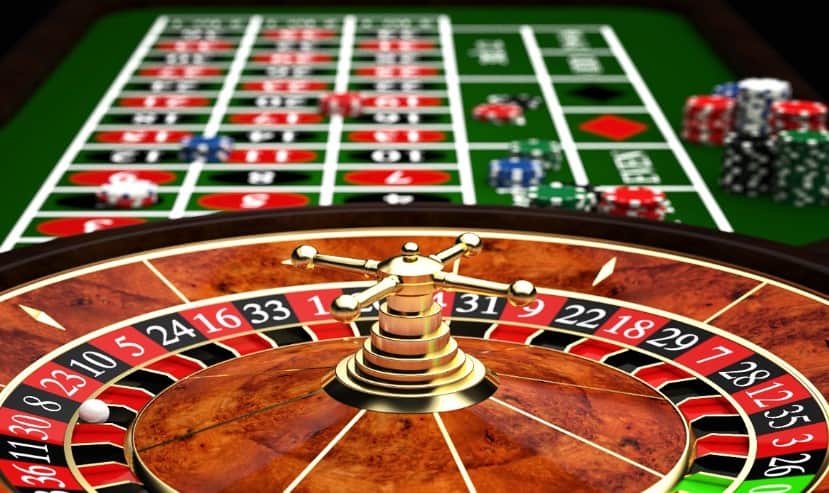
How to Play Roulette Step by Step Guide E-Vegas.com
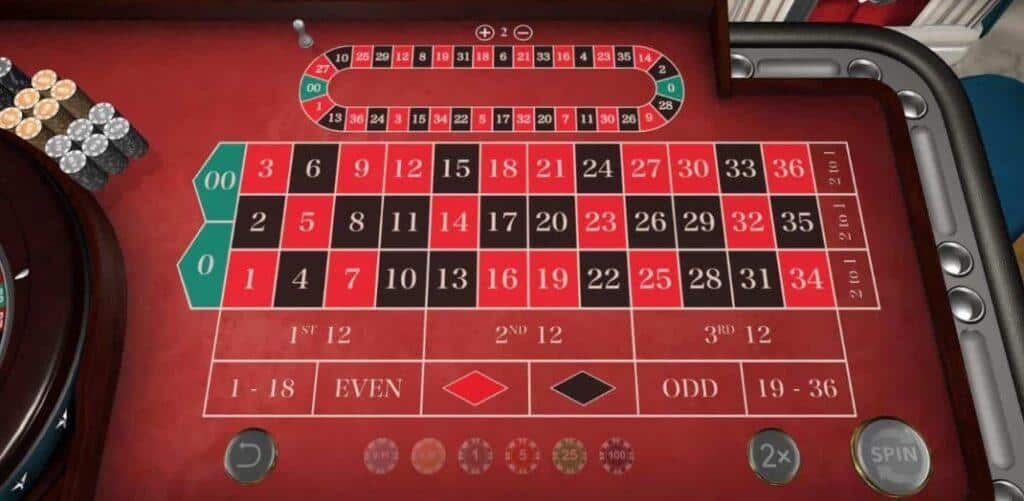
Roulette: American | Why American Roulette Online Is Not Your Best Roulette Option
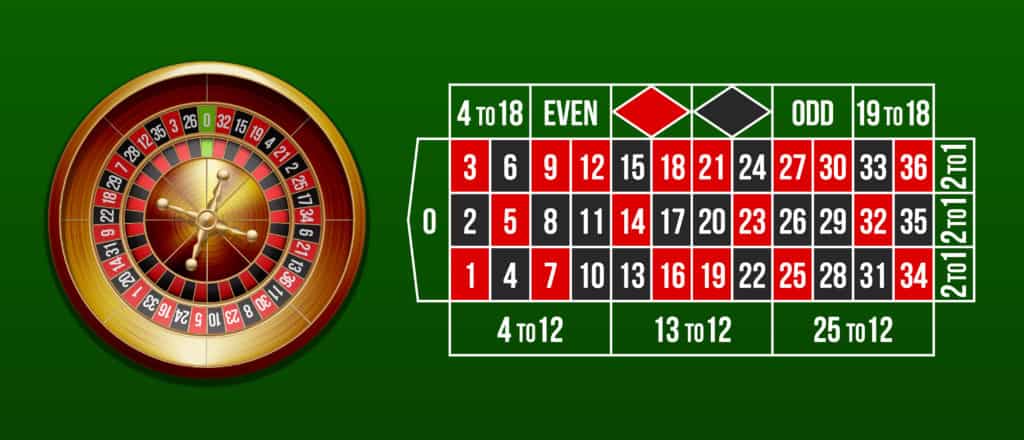
Roulette: European | What is European Roulette and How to Play? E-Vegas.com Guide
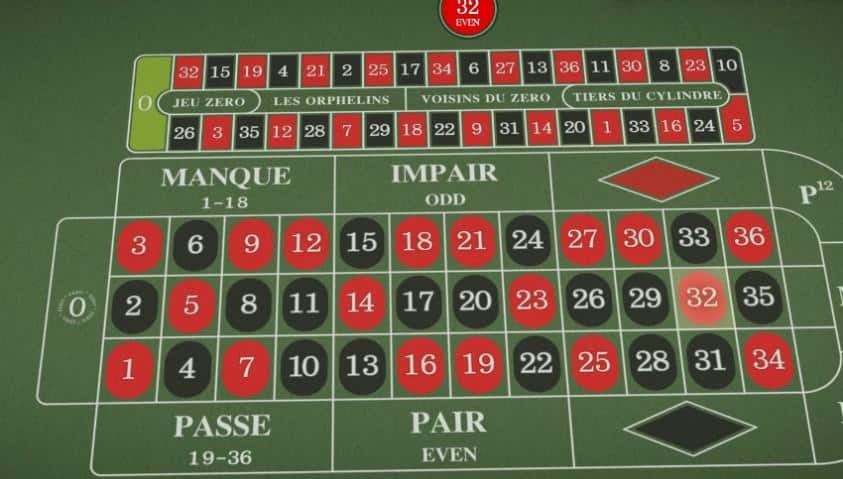
Roulette: French | What is French Roulette and How to Play? E-Vegas.com Guide
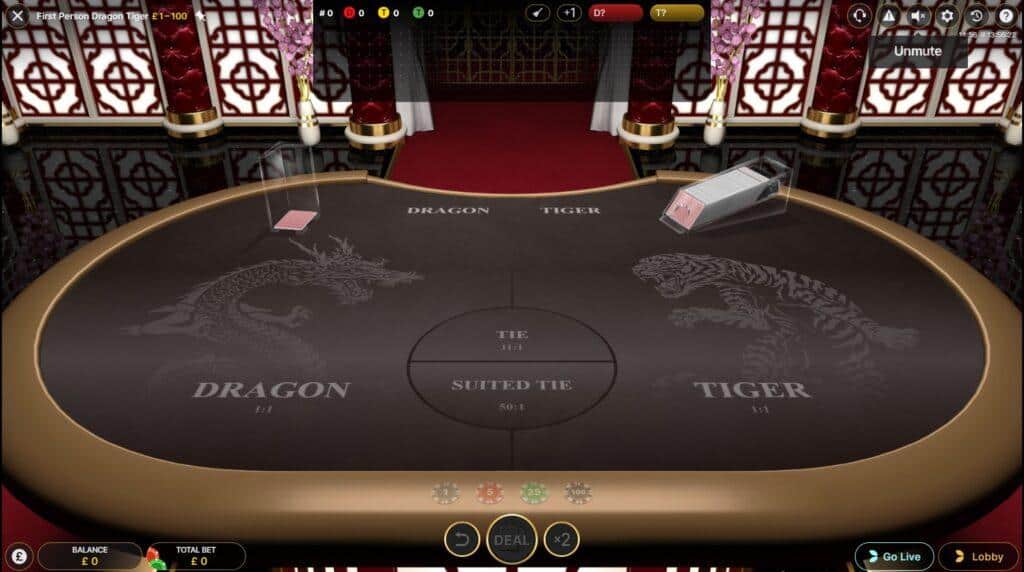
Game Review: First Person Dragon Tiger | Evolution Gaming | E-Vegas.com Review
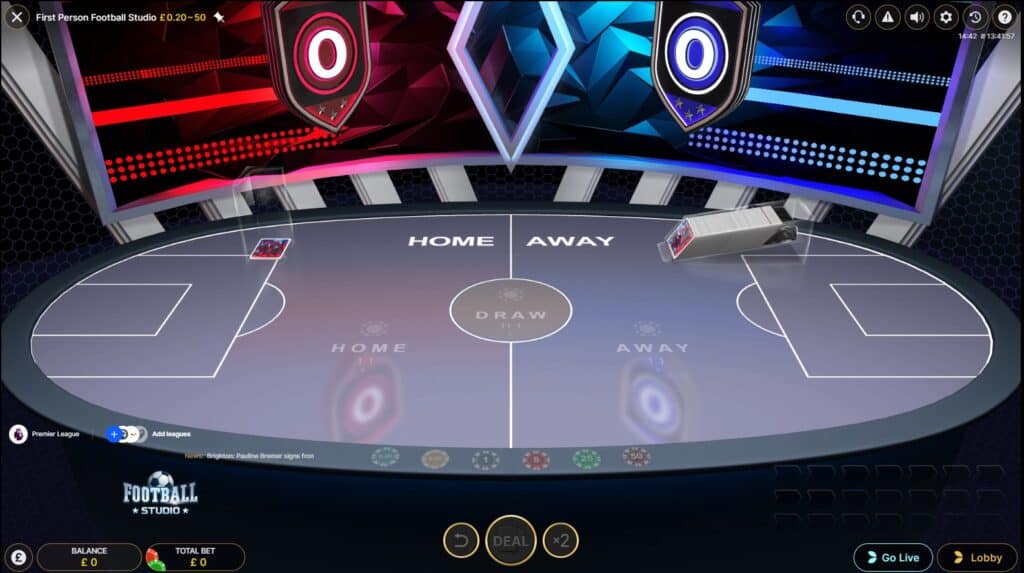
Game Review: First Person Football Studio | Evolution Gaming | E-Vegas.com Reviews
Frequently Asked Questions (FAQs):
1. How can I calculate the house edge for a specific casino game?
To calculate the house edge, understand the game’s rules, payouts, and odds. Many online resources provide guides and calculators for determining the house edge.
2. Is card counting legal?
While card counting is not illegal, casinos may consider it advantage play and may ban players who use this strategy. Know the laws in your jurisdiction and adhere to casino rules.
3. What is the significance of a progressive jackpot?
A progressive jackpot offers players the chance to win a growing sum of money until it is won. It adds excitement and the potential for life-changing winnings to certain casino games.
4. How can I manage my bankroll effectively?
Manage your bankroll by setting limits, allocating funds for gambling, and practicing responsible betting. Set a budget, avoid chasing losses, and know when to stop playing.
5. What are the benefits of joining a loyalty program?
Loyalty programs offer benefits like exclusive bonuses, rewards, and personalized services. They enhance your overall casino experience and provide additional value for your gambling activities.
6. What is the role of a croupier in a casino?
A croupier is a casino employee who oversees table games, dealing cards, collecting bets, and enforcing game rules to ensure fair play.
7. Can I use card counting in online casinos?
While technically possible, online casinos often use multiple decks and shuffle more frequently, making card counting less effective. It’s crucial to understand the rules and terms of each online casino.
8. How do I avoid going on tilt while gambling?
To avoid going on tilt, take breaks, set loss limits, and recognize when emotions are affecting your decision-making. Maintaining a calm mindset is essential for responsible gambling.
9. What does the term “whales” refer to in casinos?
“Whales” are high-stakes gamblers who wager substantial amounts of money in casinos. They are known for their significant financial resources and impact on the casino’s revenue.
10. Can I participate in a loyalty program at multiple online casinos?
Yes, you can participate in loyalty programs at multiple online casinos. However, each casino’s program is independent, and benefits may vary. Check the terms and conditions of each loyalty program for details.





